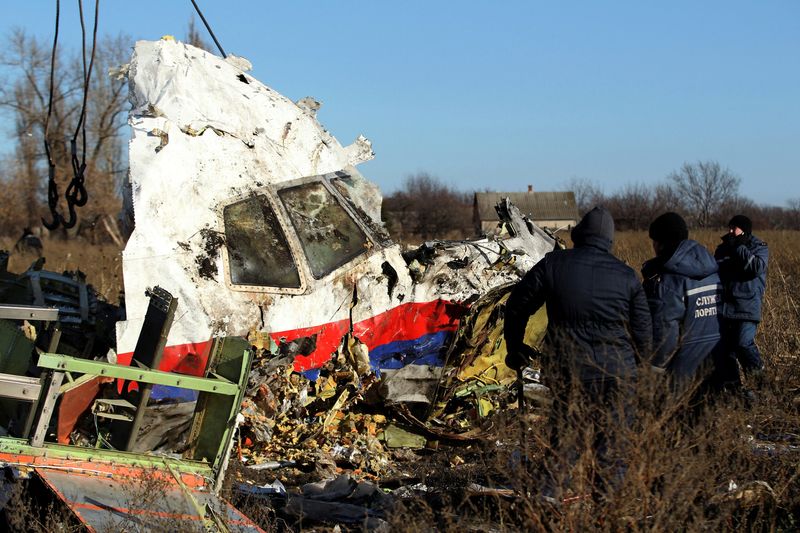MOSCOW (Reuters) - The Kremlin dismissed on Thursday the findings of international prosecutors investigating the downing of Malaysia Airlines Flight 17 (MH17) who said they had found "strong indications" of Russian President Vladimir Putin's involvement in the incident.
The prosecutors said on Wednesday at The Hague they had found "strong indications" that Putin had approved the use of Russian BUK missile systems that were used to shoot down the plane over eastern Ukraine in 2014.
In Moscow's first reaction to their claim, Kremlin spokesman Dmitry Peskov said Russia "could not accept" the results of the investigation since it took no part in the process. He also said the investigators had not publicly presented supported evidence.
MH17 was shot down by a Russian BUK missile system as it flew over eastern Ukraine from Amsterdam to Kuala Lumpur on July 17, 2014, killing all 298 passengers and crew, including 196 Dutch citizens.
At the time, Russian-backed separatists were fighting Ukrainian forces for control of the eastern Donbas region.
PHONE CALLS
Prosecutors cited intercepted phone calls for their findings, but said evidence of the direct involvement of Putin - or other Russian officials - was not conclusive enough to pursue a criminal conviction, and halted their probe.
Russia has repeatedly denied state involvement in the downing of MH17. Peskov on Thursday dismissed the evidence which had been presented by investigators.
"We know that a recording of a supposed phone call was published ... in which not a single word is said about weapons. Even assuming that this conversation is real ... there is not one word about weapons. Nobody has published anything else, so it's impossible to say anything," Peskov told reporters.
Asked specifically about the claim that Putin approved the delivery of BUK missile systems to pro-Moscow separatists in Ukraine, Peskov said: "Russia did not take part in this investigation, so we cannot accept these results - especially since no basis for these statements has been made public."

Following the plane's destruction, the Netherlands, Australia, Belgium, Ukraine and Malaysia set up a joint investigation team to establish who was responsible and to assemble evidence for criminal prosecutions.
In November, a Dutch court convicted two former Russian intelligence agents and a Ukrainian separatist leader of murder for helping arrange the missile system used to shoot the plane down. The men, who were tried in absentia, remain at large.